Femke Nijboer is an assistant professor in the Biomedical Signals and Systems (BSS) group at the University of Twente (Enschede, the Netherlands). In May 2008 she obtained a PhD in Neuroscience (magna cum laude) at the International Max Planck Research School for Neural and Behavioral Sciences. She has conducted extensive and widely cited clinical work with brain-computer interfaces for patients with neuromuscular disorders (and locked-in patients) at the Institute for Medical Psychology and Behavioral Neurobiology of the University of Tübingen. She the winner of the Tursky Award (2006) for Excellence in pre-doctoral research. In 2011 she was awarded with an NWO-Veni grant to develop novel technology assessment tools to investigate ethical, legal and societal issues of research and development of neurotechnologies and to bring together stakeholders from various disciplines. In 2015 she was awarded with the l’Oreal-UNESCO For Women in Science Award for a 5-month fellowship at the Netherlands Institute for Advanced Study (Sept 2016 – Jan 2017). Nijboer currently investigates smart coaching strategies for e-health and telemedicine.
Her work is a cross-over of human-computer interaction, neuroengineering, e-health, telemedicine and ethics.
Organisations
- Leefstijl
- Older adults
- Loneliness
- Malnutrition
- Happy Eating
- Accessibility
- Inclusion
- Resilience
- Empowerment
- Art as a research tool in science
- Co-creation, codesign
- Speculatief ontwerp
Publications
2025
2024
2023
2022
2021
Research profiles
I teach in the bachelor Creative Technology.
Affiliated study programs
Courses academic year 2025/2026
Courses in the current academic year are added at the moment they are finalised in the Osiris system. Therefore it is possible that the list is not yet complete for the whole academic year.
Courses academic year 2024/2025
Current projects
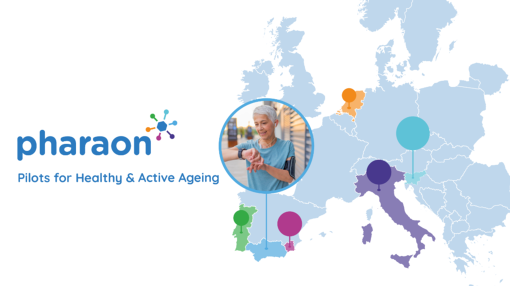
Pharaon
Pilots for active and healthy aging
PHArA-ON’s overall objective is to make smart and active living for Europe’s ageing population a reality by creating a set of integrated, highly customizable and interoperable open platforms with advanced services, devices, and tools including IoT, artificial intelligence (AI), robotics, cloud/edge computing, smart wearables, big data, and intelligent analytics. Data privacy, cybersecurity, interoperability and openness will be key design principles to pursue through the requirements generated by PHArA-ON experts. PHArA-ON will be built upon mature existing state-of-the-art open platforms and technologies/tools provided by the partners, which will be customised and will implement cloud technologies, AI techniques and traditional algorithms for big data intelligent analytics. A user-centric approach will be followed.
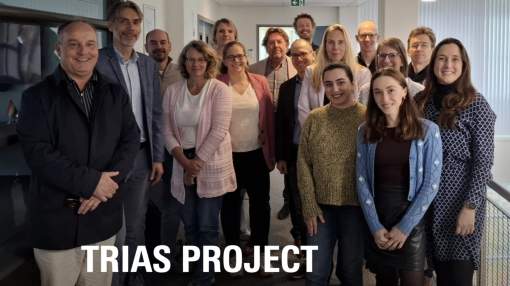
TRIAS
Integrating digital, spatial and physical mobility in healthcare organisations
Can we reduce the need to travel to reduce CO2 emissions from transport? Mobility concerns are typically not included in the decision-making processes of many mobility-generating sectors, including the health sector. The digitalisation of the healthcare sector provides opportunities to deliver more local and digital healthcare, thus reducing the need to travel. However, there are several challenges related to the healthcare organisation, and integrated frameworks and organisational arrangements are currently lacking.
The 4-year Triple Access System Planning (TRIAS) project will examine strategies to deliver more local and digital healthcare, aiming to improve the healthcare organisation, accessibility, and quality of healthcare. To do so, we (1) develop, co-create and test new frameworks and tools to optimise healthcare accessibility and efficiency, (2) develop new business cases, financial and organisational arrangements, and (3) develop training and education for the healthcare practice.
TRIAS is one of two research projects funded by NWO under the Knowledge and Innovation Covenant (KIC) call ‘Mobility in a sustainable future’. The main applicant is prof.dr.ing. Karst Geurs (UT, ET). Co-applicants are dr. Anna Grigolon (UT, ET), prof.dr.ir. Erwin Hans (UT, BMS) and dr.ir. Monique Tabak (UT, EEMCS), prof.dr.ir. Vincent Marchau (Radboud University), dr. Sander Lenferink (Radboud University) and dr. Marjolein den Ouden (Saxion). TRIAS is co-funded by Thuiszorg West-Brabant, Isala, RadboudUMC, Gaiyo, Achmea, CZ, Goudappel and Gemeente Enschede. Collaborating partners include Medisch Spectrum Twente (MST) and Careyn.
Contact: Prof. Karst Geurs, University of Twente
Finished projects
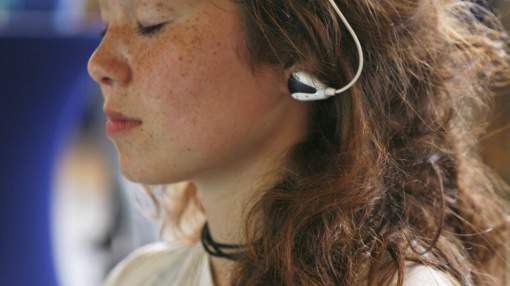
Veni project: Bridging the gap between ethics and neuroengineering - the case of brain-computer interfacing
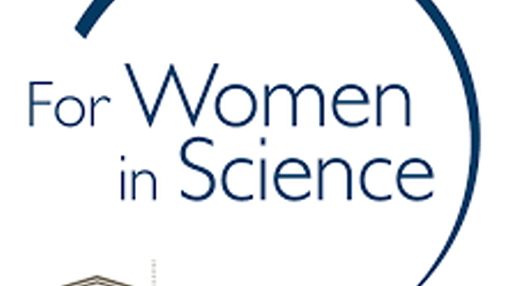
For Women in Science Fellowship
Research project at Netherlands Institute for Advanced Study (NIAS)
Inclusive and Responsible Innovation of Neurotechnology
Brain-Computer Interfaces are systems that can potentially help people with locked-in syndrome or advanced ALS to communicate with their brain activity. There is still relatively little debate and exchange between people who develop BCIs, ethicists and potential end-users. In my current Veni project I develop a novel and interdisciplinary approach, based on Value-Sensitive Design, Constructive Technology Assessment and Art, to promote inclusive and responsible innovation of Brain-Computer Interfaces. Art is used to help people imagine and debate about future design scenarios. With a fellowship at NIAS I would like to write the “grand finale” paper about this overall approach. In addition, I would like to write an ERC Starting Grant proposal to test this approach in the development of other neurotechnologies and to further investigate how values of end-users can be integrated in the design of neurotechnology.
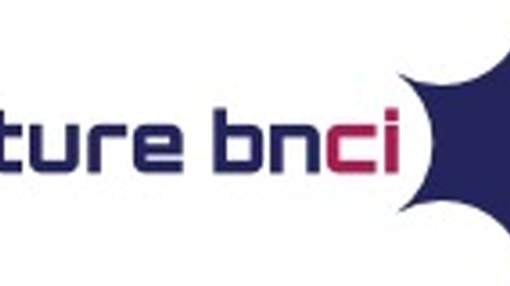
future BNCI
A roadmap for Brain-Computer Interfacing
Assistant professor, writer and public speaker
- Health, prevention and humor
- Brain-Computer interfaces
- Brainhacking
- Locked-in syndrome
- e-Health
- Neurotechnology
- Ethics
In the press
- 2018 Nieuwe technologieën geven mensen met locked-insyndroom weer hoop. Trouw.
- 2018 Paul (47) is volledig verlamd, maar niet zielig: 'Je moet er het beste van maken'. RTL Nieuws.
- 2017 Computer Idee. Helemaal Zen.
- 2017 BNR Radio. Interview.
- 2016 De Volkskrant. Opiniestuk: Een spraakcomputer lost niet alle problemen op.
- 2016 Newsletter Leiden University. De Honours Academy is een proeftuin.
- 2016 Radio. NOS Met het oog op morgen.
- 2016 Mare Online. Krijgers op de Catwalk. 2016 Newsletter Leiden University. Een geluid van mensen met locked-in syndroom.
- 2015 Mare Online. Liever geen robot look.
- 2015 ANP. Vrouwen in top wetenschap nog steeds schaars.
- 2015 Brabant Dagblad. Topvrouwen slaan de gong. 2015 AD Haagse Courant. Delfste luidt beursgang van de AEX
- 2015 Trouw. Van Halem en Nijboer
- 2015 Leidsch Dagblad. Beurs voor topvrouwen
- 2015 Radio. BNR Gezond. Brain-computer interfaces is meer dan een spelletje.
- 2015 Volkskrant. Volledig verlamd en toch gelukkig
- 2012 VPRO Labyrint. De magie van het brein
- 2012 VPRO Labyrint. Napraat sessie
- 2011 Enschede FM. Interview naar aanleiding van de Veni toekenning.
- 2010 Tubantia. Grijpen met je hersenen
- 2007 Wie Handschuhe voll Sand – Leben mit der Krankheit ALS. Film by Reinhild Dettmer-Finke.
Address
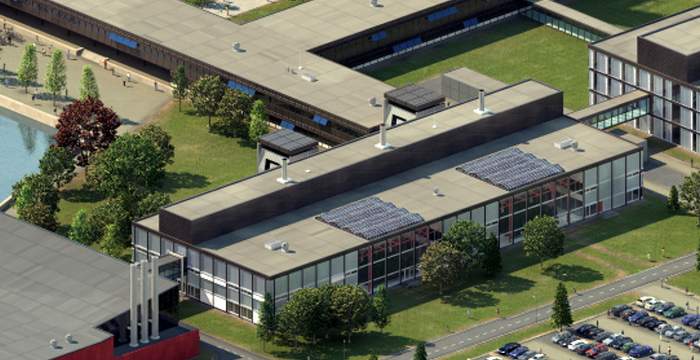
University of Twente
Horst - Zuidhorst (building no. 28)
De Horst 2
7522 LW Enschede
Netherlands
University of Twente
Horst - Zuidhorst
P.O. Box 217
7500 AE Enschede
Netherlands